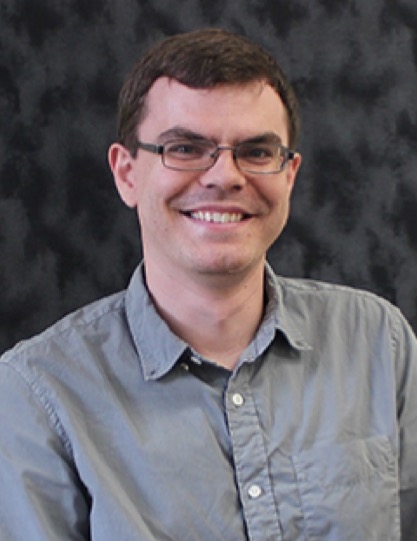Chemistry Seminar on 'Calixpyrrole Ligands for Renewable Energy Applications' Dec. 7
Peter Sues of Kansas State University will give a virtual seminar titled "Leveraging the Power of Multiple Metal Centers via Calixpyrrole Ligands for Renewable Energy Applications" on Zoom from 3:30-4:30 p.m. Central on Monday, Dec. 7. The talk is free and open to the public.
Peter Sues joined the chemistry department at Kansas State University in August 2017. A native Torontonian, he received an Honours Bachelor of Science at the University of Toronto while majoring in chemistry and biochemistry. As an undergraduate student, he worked in the laboratory of Prof. Douglas W. Stephan exploring the chemistry of Frustrated Lewis Pairs.
He continued his education at the University of Toronto earning a doctorate under the mentorship of Prof. Robert H. Morris. His Ph.D. research focused on a variety of projects including the development of iron-based hydrogenation catalysts and the chemistry of ruthenium complexes with highly strained phosphine ligands.
Peter subsequently joined the laboratory of Prof. Richard R. Schrock at the Massachusetts Institute of Technology as a postdoctoral research associate. There, he expanded his chemical knowledge while working on tungsten- and molybdenum-based olefin metathesis catalysts.
Using his skills as an inorganic and organometallic chemist, he currently studies the development of novel catalytic systems for renewable energy applications and olefin metathesis that make use of sustainable resources.
Stockpiling the energy harvested from intermittent renewable sources in chemical bonds is an integral part of creating a sustainable energy economy. Abundant small molecules, such as N2, O2, CO2, H2O, etc., will play a pivotal role in this area as their reduction and oxidation will be key in generating power on an as-needed basis. Activating these substrates, however, is a kinetically challenging endeavour that requires multi-electron and multi-proton processes. Very few homogeneous catalysts are capable of effecting these transformations, and those that can largely rely on rare and expensive platinum group metals.
Natural systems, on the other hand, can activate small molecules efficiently using base metals. This is achieved through the use of multiple metal centers working in concert. Additionally, metalloenzymes are adept at controlling the orientation of small molecule binding and at protecting reactive intermediates by providing a sheltered active site for chemical transformations. Using natural systems as inspiration, the Sues group envisions utilizing multiple metal centers to activate small molecules through cooperative, multi-electron mechanisms. To do this, new ligand architectures are needed.
The Sues group uses calixpyrroles as they are synthetically facile and share some of the same characteristics as metalloenzymes: they can optimize the orientation of small molecule binding and increase catalyst stability by sheltering reactive intermediates in a supramolecular "catalytic cleft". This presentation will explore the synthesis of new calixpyrrole ligands and metal complexes.
To attend the seminar, please visit the Zoom link.
Meeting ID: 858 0124 6081
Passcode: Fall@2020
Topics
Contacts
Megan Parette, communications officer
Department of Chemistry and Biochemistry
479-575-4601,
mbparett@uark.edu
Headlines
U of A's Inspirational Chorale Makes Its Carnegie Hall Debut
The U of A's Inspirational Chorale took center stage at Carnegie Hall in March, performing under the direction of professor Jeffrey Murdock to a packed audience at the iconic Stern Auditorium.
The State of Economics With Mervin Jebaraj Set for June 5
U of A economist Mervin Jebaraj will analyze state's economic trends and regional issues in an upcoming talk. Preregistration is required by May 31.
Faculty Demonstrate Dedication to Student Success Through Teaching Credentials
Eight faculty members from across the U of A have earned the prestigious Association of College and University Educators certification in Effective College Teaching.
Artificial Intelligence, Machine Learning Boost Arkansas Animal Science Research
Aranyak Goswami, a bioinformatics specialist, will work with three different departments to boost the research arm of the U of A System Division of Agriculture.
College of Education and Health Professions Doctoral Student Picked for Grosvenor Fellowship
Jessica Culver, a doctoral student in the College of Education and Health Professions Adult and Lifelong Learning program, has been selected as a member of the 2024 Grosvenor Teacher Fellowship.





